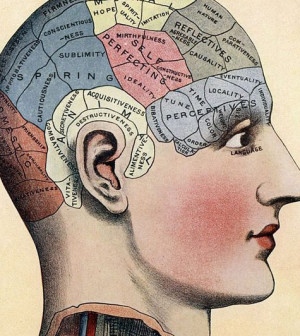- Could Your Grocery Store Meat Be Causing Recurring UTIs?
- Are You Making This Expensive Thermostat Error This Winter?
- Recognizing the Signs of Hypothyroidism
- 10 Strategies to Overcome Insomnia
- Could Artificial Sweeteners Be Aging the Brain Faster?
- Techniques for Soothing Your Nervous System
- Does the Water in Your House Smell Funny? Here’s Why
- Can a Daily Dose of Apple Cider Vinegar Actually Aid Weight Loss?
- 6 Health Beverages That Can Actually Spike Your Blood Sugar
- Treatment Options for Social Anxiety Disorder
Estrogen Receptor May Play a Role in Autism


Significantly lower levels of a key estrogen receptor may play a role in autism spectrum disorders, according to a new study.
This link between autism and sex hormones could help explain why the condition is about four times more common among men than women, the researchers noted.
“Our study is the first indicator that estrogen receptors in the brain of autism spectrum disorder patients may be different to controls,” study author Anilkumar Pillai, from Georgia Regents University, said in a news release. “Though this suggests a possible reason for the gender bias, we still need to determine what causes the reduced production of estrogen-related proteins.”
Autism spectrum disorders refer to a group of disorders that affect brain development. Signs and symptoms of autism include impaired social interaction and communication skills as well as restricted and repetitive behavior.
For the study, published Sept. 9 in the journal Molecular Autism, the researchers compared the brains of 13 people with autism to 13 people who didn’t have the condition. The difference they found was in the brain’s estrogen signaling.
Specifically, the researchers measured levels of an estrogen receptor molecule known as ERβ in the participants’ brains. They also measured levels of aromatase, an enzyme that converts testosterone to estradiol, the most potent estrogen.
The study revealed the brain tissue of those who had autism had 35 percent less ERβ mRNA and 38 percent less aromatase mRNA. This could affect the conversion of testosterone to estradiol, increasing testosterone levels.
The researchers noted their study was small, and said more research is needed to explore how changes in estrogen signaling are related to autism.
“It is worth looking at whether drugs which modulate estrogen reception, but do not cause feminization, could allow for the long-term treatment of male patients with autism spectrum disorders,” said Pillai. “Current treatment involves the use of antipsychotics, which has long been a major concern as these patients are typically still in a stage of life where brain development is very rapid. However, additional studies are needed to test the estrogen mechanism.”
More information
The U.S. National Institute of Neurological Disorders and Stroke provides on autism.
Source: HealthDay
Copyright © 2026 HealthDay. All rights reserved.










